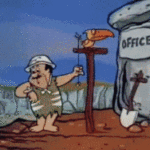
By Yvonne Milosevic
Show of hands if you would move to France in a heartbeat if you could. There’s a lot to love about the land of the 35-hour workweek: 30 paid days off annually, leisurely lunches—with wine!—on the daily.
Alas, the U.S. will never rival France in the work-life balance or vacation department. (A moment of silence, please, for our collective dashed dreams.) Expedia’s 18th annual study on Vacation Deprivation found that the U.S. took the fewest number of vacation days globally in 2018, tying for last place with Japan and Thailand.
The latest stats available from the US Travel Association show that Americans had 705 million unused vacation days in 2017. That’s up from 662 million the year before. Even sadder, 52% of employees left unused vacation days on the table at the end of 2017.
We’ve seen reams of evidence that happiness and productivity skyrocket when employees have adequate time off to recharge. Unfortunately, significant roadblocks—no time and/or financial constraints—remain in place for many of us.
But researchers from the UCLA Anderson School of Management have come up with a genius workaround. Professors Colin West, Cassie Mogilner Holmes, and Sanford E. DeVoe suggest this simple, affordable hack: frame your weekend like a vacation.
When (not) in France
In two studies reported in a working paper, the researchers instructed one group to treat the weekend as they usually would. To the second group, they urged participants to “think and behave in ways as though you were on vacation.”
They discovered that participants who treated the weekend as a vacation returned to work on Monday happier than the control group that spent the weekend in their usual routine. Sure, the “vacation” crowd did spend less time on housework and childcare and more time eating and getting busy. But those activities themselves didn’t account for the higher happiness score.
“West, Holmes and DeVoe teased out that it wasn’t that the vacation-minded were happier because they did fewer chores or spent more time on enjoyable activities. It had more to do with the fact that once nudged out of their normal weekend routine, they spent the weekend being more present in whatever they were doing.”
DO try this at home
We love need vacations because they force us to break out of our daily routines. We can indulge in fun or relaxing activities without any guilt that we “should” be doing something productive instead.
You don’t have to travel anywhere to be on vacation. Vacation is a state of mind. With a little effort, you can replicate those conditions at home. Slow down. Resist the urge to check work email. Give yourself permission to spend the afternoon reading a book or going for a hike. Why not check out that new restaurant everyone’s ‘gramming about? Your To-Do list isn’t going anywhere. Even if you aren’t either, you can still reap the benefits of a proper mental break that kicks off every Friday evening.


